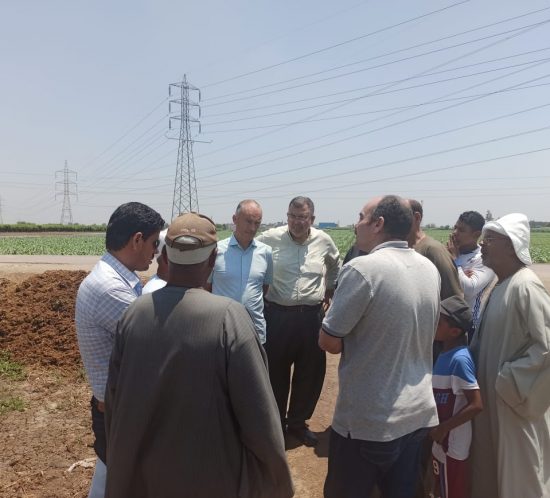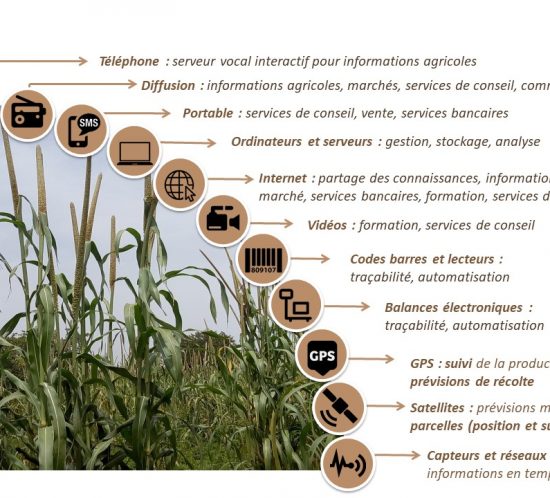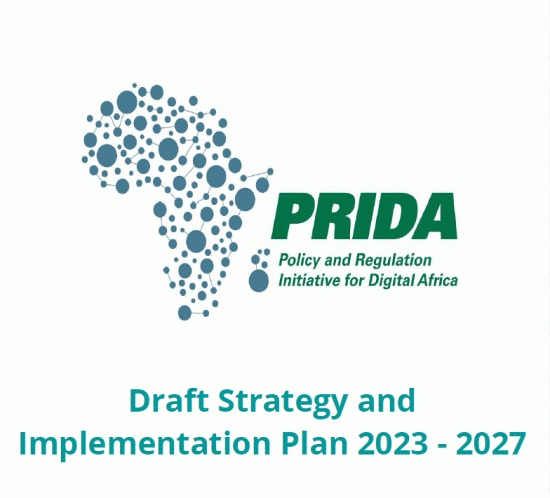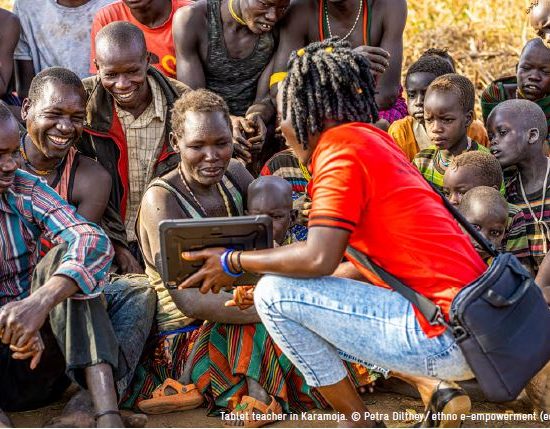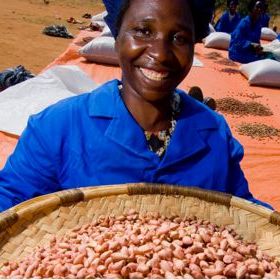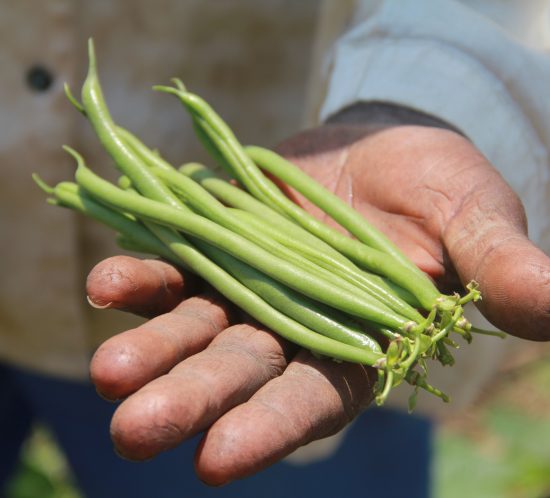Egypt: e-Advisories for irrigation farmers / Nile Delta Water Management Project
The objective of national agricultural extension services is to reach out to all farmers of the country and to provide them with information and knowledge on best agricultural practices so that they can make most out of their businesses and provide the country’s population with the required food.
„Introducing new information technology application in all levels starting at the village is a must if agricultural development efforts are to materialize.” Sustainable Agriculture Development Strategy Towards 2030, (2009)
e-extension can be defined as the use of electronic technologies to enhance traditional extension approaches (such as written and face-to-face) so as to enable change. Digital extension is similar, except that it only includes digital technologies and thus excludes, for instance, the radio.
PROBLEM:
Farmers require access to knowledge about the optimal agricultural practices for the crops they plant. Soil, geography, and weather conditions are influencing this advice, infestation by pest and diseases needs immediate actions. Agricultural extension services offered by governments, NGOs and value chain actors, aim to fill this knowledge gap by providing information on best practices, market prices, weather information, and training and education on certification standards in a timely manner. But often, extensionists have to travel long distances to visit the farmers for a face-to-face consultation. And farmers frequently need transport to travel to training events on demo plots. In addition, the Egyptian national extension service reduces staff while farmer numbers are increasing. In Africa, it is estimated that there is one extension officer per 4,000 farmers, while FAO recommends one officer per 400 farmers. If only field-level extensionists are considered, there is one officer per 7000 farmers in Egypt (based on GFRAS figures 2011[1]). FAO suggests this indicator for the monitoring of advisory efforts. However – the digital approach is not reflected here[2]. This entails that the majority of farmers lack access to face-to-face extension services. And the lack of timely advice for planting, fertilizing, fighting pests and diseases, and harvesting can lead to devastating results – crop destruction and loss of harvest and livestock. In addition to this, the Covid19 pandemic added the problem that face-to-face advice was impossible, so traditional advisory was disrupted. The high average age of extension professionals further endagers the existing system, as existing knowledge is not institutionalized and threatens to be lost with the retirement of the professionals.
SOLUTION:
Digital extension services (or e-advisory) allow traditional extension services to add an alternative channel for dissemination of their advice. Digital extension delivery services are gaining ground as cost-effective and accessible platforms for knowledge transfer and exchange. This can only be a supplement and cannot replace personal visits, farmer field schools and practical training on the property. ICTs have already changed the reality of agricultural advisory and extension services, allowing to reach out to larger numbers of farmers through SMS and IVR. Studies have shown that SMS-based advisory increased wheat production from one ton per hectare to three tons in Ethiopia. According to Porciello, Coggins et al, 2021, e-advisory and digital extension services represent around 80% of all digital service types in agriculture.[3] Simple e-advisory systems allow extensionists to send messages to pre-defined groups of farmers. More sophisticated systems which are connected to farmer registries allow sending farmer-specific, customized and localized messages. This requires prior profiling of the farmers. These systems are called ‘push’-systems as the messages are pushed to the farmers in intervals determined by the extensionists.
In contrast to this, ‘pull’-systems allow farmers to ask questions and demand for specific advice in case of problems. Underlying technology can be USSD or App technology. Under research are systems, where artificial intelligence is used to deliver appropriate answers and where Chatbots allow to directly communicate with the system.
Digital extension services exist on many levels: e-advisory can be provided by governmental extension services, NGOs and projects, as well as on the farmer-to-farmer basis. Some solutions rely on access to wifi or mobile data and imply ownership of a smartphone, while others only require a simple phone that can receive SMS, or even no phone at all, simply an FM radio.
TYPICAL USE:
Egyptian farmers typically receive advice and information through official Facebook sites, bulk SMS services, IVR, or online using their smartphones to access useful apps and websites, watch videos. E-Advisory services are often combined with other functions such as market linkages, access to finance and insurance etc.
PREREQUISITES:
To access most of these solutions a farmer would need to have access to a simple mobile phone. Smartphones and mobile data would enable farmers to access apps and online video platforms, as well as services offering online consultation through a chat or video call with an advisor. Fortunately, in Egypt, most farmers own phones and a smartphone usually is available within each family. In the African context, literacy rate is relatively high and in case illiteracy of the target group is low, there usually is a family member who can help out or the systems use pre-recorded voice messages or the community radio to bridge this gap.
CHALLENGES:
A low digital literacy of the farmer is a potential challenge, the lack or low performance of mobile networks, access to technology as well as electricity. However, in the case of Egypt in general and of the Nile Delta in particular, digital literacy rate, access to electricity and mobile network coverage are relatively good. For the implementation of e-advisory, one needs to know how to use the available resources correctly and to their full potential. While using simple mobile phones might be intuitive, downloading and installing an app, searching for necessary information, accessing videos and support chats requires a certain experience with a smartphone. Also, the use of mobile data implies continuous costs.
Another challenge is the adoption rate. Reading or receiving an extension message does not necessarily change the behaviour of the farmer. The message first must be understood by the farmer and then the message has to convince the farmer to apply the content. The evaluation of a GIZ e-extension project in India revealed, that approximatively only 10% of farmers who read and advice message followed this advice.
TECHNOLOGIES:
From simple to complex, there are
- Push-system pumping advice and information messages via SMS or voice mails;
- USSD- and IVR-based push-on-demand systems with pre-defined menus for specific contents;
- Pull systems (typically in combination with call centres). Often smart-phone base, which allow integration of photos and videos.
- Internet forums with discussion groups around topics and clearly defined roles and permissions of the users
- Highly advanced, AI-powered systems, eventually with Chatbots.
PROPOSED SOLUTIONS:
- The study suggests introducing a Digital Agricultural Forum, managed by the CAAEE, with content oversight by the ARCs. Such a forum can reach those farmers directly, that own a smartphone and have the required digital skills, and indirectly it can reach out to all farmers via lead farmers, farmers’ neighbours or any family member of the farmer owning a smartphone. Forum participants can come from any agriculture-related profession, organisation, main users are farmers and those, who give advice. Advice can come from the ARCs, from CAAEE staff, from agrodealers as well as from other farmers. The platform thus is inclusive and multi-disciplinary. The ARCs have a supervisory role in relation to content: they can either provide approved answers to the questions raised, or mark as approved the answers given by third parties, that they consider to be correct. Such platform continually builds up a database of questions and answers, that can help answering questions that were previously already asked. This database later can also serve as the backbone for an AI-driven advisory chatbot. We suggest integrating the agricultural forum platform with CAAEE’s Web services that are under development, and thus to build it with the Drupal CMS already in use at CAAEE.
- The agricultural platform later can be completed by a Community Platform which allows Egypt’s farming stakeholders to communicate, exchange ideas and to present their agribusinesses. A community platform combines functionalities like those provided by Facebook and WhatsApp and integrates them into the forum. The Consultant suggests, to build such community platform on the freely available open source platform Open Social. This software is a Drupal extension and thus it will be possible to integrate the Community Platform with the Agricultural Forum Platform.
NOTES:
On a broader level, it is important to note that while digital extension holds promise to reduce the cost of providing smallholder farmers with access to information, it cannot be seen as a panacea for increasing agricultural productivity in Egypt. By helping to reach farmers with more and hopefully better-quality extension, digital extension can facilitate the adoption of best practices and the use of better quality and more appropriate inputs and services. For this reason, digital extension can be a great opportunity catalyst for broader agricultural change. However, ensuring the quality of advice, finding connections to “human” advisors in rural areas, and promoting sustainability by supporting high-potential enterprises while helping to regulate the market power of large companies are crucial to ultimately fulfilling this promise.



